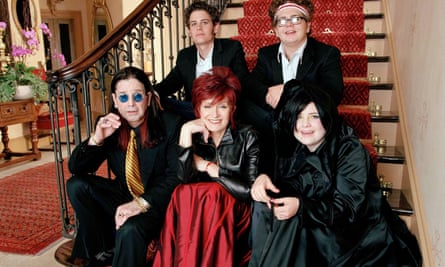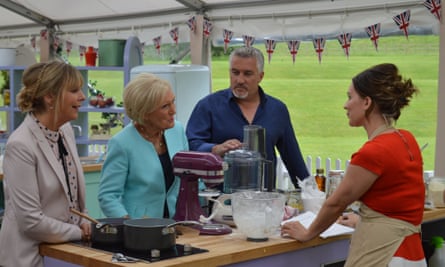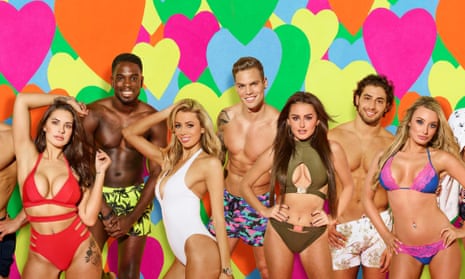The thing about summer romances is they always end. Love Island has been the surprise hit of the summer, and it is about to come to a climax. Liam Gallagher loves it; Stormzy is a superfan. Jeremy Corbyn admitted he hadn’t been watching it, but at least he knew what it was – he wants Marcel, a member of former hip-hop boy band Blazin’ Squad, to win. There have been endless broadsheet think pieces written during its two-month run, while it seems as if the tabloids and celeb magazines have written about nothing else.
If you are the only person in the country who hasn’t been watching the show, the premise is this: a group of implausibly taut young people, most of them the colour of a digestive biscuit, have been put in a Mallorcan villa. They are encouraged to couple up; then couples are voted off the show, and the last couple standing will, on Monday night in the live final, win £50,000. The game is supposed to be: are the couples genuine, or just playing to win?
But nobody really cares about the money (especially not in a show where the contestants have already built huge social media followings and are sure to wring every last #ad penny out of them). The draw is the love. But this is love in a hothouse, nurtured by the producers – a “perfect little bubble”, as one of the contestants said on Friday night’s show. “Love Island is a thought experiment designed to prove how horny a human being can get without any outside stress, and the answer is ‘exceptionally horny’,” as Vice puts it.
These aren’t relationships familiar in the outside world, with irritations such as who does the childcare, or why do you commandeer the TV every night for a trashy ITV2 reality show? This is first-crush stuff – the giggly, excitable relationships you had, or talked about, at school (minus the breast implants, swimwear uniform and infrared sub-duvet action, presumably). And that nostalgia for school-canteen gossip, I think, is why it is so popular.
That, and the fact that everything else is so grim. “It’s a fantastic piece of escapism,” says Gladeana McMahon, a psychotherapist who helped create the UK’s ethical guidelines for reality TV. “We’re going through such a dreadful time that I think that what happens is people love to get sucked in to something like that. Partly it’s a fantasy thing, partly it’s because we like to comment [on people].” Love Island, she says, has pierced the heart of the human condition. “Most people love to be in love. It’s got a kind of innocence to it in a way and I think that attracts people. We’ve all been through it – when you fancy someone and maybe they don’t fancy you, or how do you get together? We need to be uplifted and I think this is what it does.”
It is as lush and summery as a ripe peach, and although there have been rivalries, it doesn’t feel malicious, or even that cynical, in the way many reality shows do. It shares much with that other piece of must-see telly: The Great British Bake Off. It’s funny, has a feelgood factor, with a cast of characters who are largely supportive of each other and a hyper-real feel of an endless summer – only they’re kneading sun-warmed flesh, not dough, and there is a very real threat of chlamydia. And like Bake Off, it wasn’t an instant cultural phenomenon – Love Island has had two earlier series to build an audience and for the production team to hone the show, now as tight and slick as a male contestant’s pectorals.
It isn’t a radical format (it isn’t even the first Love Island – there was a 2005 “celebrity” version). “It’s a little bit of a throwback to the rather cheesy superficial tropical island dating formats that were around in the early 2000s,” says Ed Waller, editorial director of C21 Media, a publishing company for the TV industry. “There were a whole spate of similar formats – Temptation Island, Forever Eden – around 15 years ago. Some were from Britain, some from America. Some were knock-offs of Survivor but with a dating twist. The whole point of them was to hook up and if you didn’t, you got booted out.”
Love Island looks back to those shows, he says, “which is a shame because, in recent years, the reality genre has gone through a bit of a permutation in the sense that it gained a little bit of meaning. Back in the old days of Big Brother there was this idea they were social experiments. In recent years, there have been a few reality shows that explored pretty significant social issues – about bullying at school, or body image, [or] pushed social boundaries. When you look at things like Faking It or Wife Swap, some of those early reality shows really explored a dimension of human character.” Then reality shows became sensationalist and often demeaning. “Love Island ticks an enormous number of boxes for the [younger] demographic ITV is going after, but I don’t think it’s pushing the genre in any way. In fact, I think it’s probably taking it back to those formats from the early 2000s – lots of good-looking young people in exotic locations.”
With this type of show, the skill is in the casting, says Waller. “If you find people that connect and interact well, you’ve got it. The format has done all the work for you and all you have to do is find some great people to pour into it.”
“The buzz last year was really building and I just knew this year it was going to be a massive deal,” says Lucie Cave, editorial director of Heat magazine. “We’ve featured the show every week since it’s been on and its always had a prominent place on the cover – we’ve certainly seen an uplift of sales. Whether or not we can directly relate it to that is another matter but I feel it’s had an impact.”
Will its success influence other reality shows? Natalka Znak, the producer behind I’m A Celebrity and Hell’s Kitchen (and Celebrity Love Island) says she was talking to a TV commissioner recently and all the current pitches are for Love Island rip-offs. “I think it’s set a very high benchmark. The trick is not to try and make a Love Island, it’s what’s the next thing after that? There is only one Love Island. It’s quite hard to get those breakout hits, they don’t come all the time. We’ll all be trying to beat it now.”
It won’t simply be a case of getting people in reality shows to have more sex because, Znak says, “the sex is not why people are watching it. It’s the storylines and people need to know what’s going to happen tomorrow. It’s a hard one to beat. It will take a few years now until someone else does.”
Its success, she thinks, is that it’s a “brilliantly produced programme. It’s a faultless piece of TV. They turn those episodes around overnight, and you really have to see the skill that goes into creating those great pieces of television. It takes years of experience to create something that faultless – there is nothing ‘lucky’ about that show.”
The show has been carefully seducing us or, to put it in Love Island-speak, “proper grafting”. Many of us will be heartbroken when it leaves us.
THE SEVEN AGES OF REALITY TV
Pre-reality
The BBC’s Come Dancing started in 1950, following competitors at amateur dance competitions. The US had Candid Camera, with real people as the stars. The long-running Up series (which began in 1964), following a group of people at seven-year intervals, could be considered reality TV.
The family unit
The Family (1974) followed the six-strong Wilkins family from Reading.
Direct descendants: The Osbournes, Keeping up with the Kardashians, anything starring Katie Price.
Young, hot people in an artificial set-up
1992 MTV show The Real World was one of the first to put a group of young people in a house together.
Direct descendants: Big Brother, obviously, which aired in the UK in 2000 (it had originated in the Netherlands).
The docusoap
Airport (1996) a behind-the-scenes look at Heathrow and Driving School (1997) were two of the first fly-on-the-wall series, creating stars in Aeroflot employee Jeremy Spake and Maureen Rees, a Welsh cleaner with questionable driving abilities.
Direct descendants: Ice Road Truckers, The Real Housewives of…
Transformations
Shows in which people, houses, gardens and toddlers can be improved by a crack team of experts. Changing Rooms (1996) was one of the first.
Direct descendants: Ground Force, What Not To Wear
Gamification
Expedition Robinson (1997) was a Swedish show, made by a UK company, where contestants were put in a survival situation, then voted off until there was a winner. The US version, Survivor, became more globally famous.
Direct descendants: The X Factor is about surviving elimination and winning. So are The Apprentice, The Great British Bake Off and I’m a Celebrity….
Constructed reality
A mix of fiction and reality. The Only Way is Essex (2010) features real people, but plots are shaped by producers and “actors” prompted.
Direct descendants: Made in Chelsea, Geordie Shore.



Comments (…)
Sign in or create your Guardian account to join the discussion